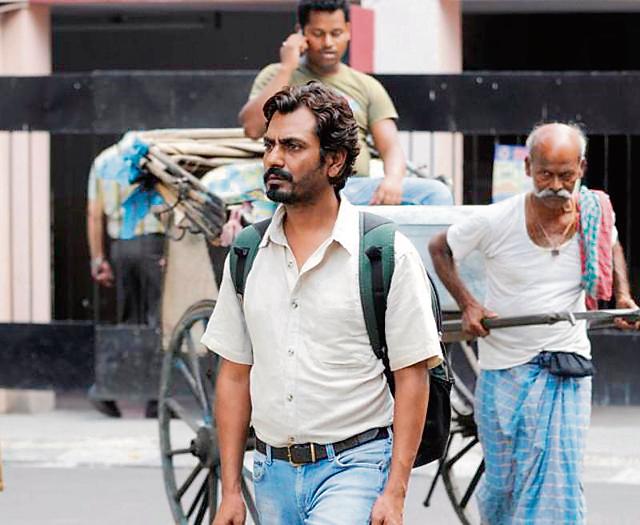Being IFFI on dissent: Difference between the festival and the films
Small-budget indian films find their spotlight at a crowded festival.
In the new James Bond film Spectre, Lea Seydoux plays Bond girl Madeleine Swann, the daughter of an assassin.

But at this year’s IFFI or International Film Festival of India, the French actor made an art house appearance in the film Diary of a Chambermaid, playing Celestine, a maid with piled-up hair, coiled passion and class anger. She announces deadpan at the employment agency: “I’m bursting with good behaviour, believe me!” and then goes on to do the exact opposite by stealing the silver of her slave-driving mistress.
Film festivals are usually full of mainstream artistes’ other lives, meant to draw a discerning audience. Yet another example of this at the 46th edition of IFFI was Bengali auteur Buddhadev Dasgupta’s first Hindi film, the small-budget Anwar ka Ajab Kissa, which features Bollywood actor Nawazuddin Siddiqui. The film, which tells the story of a private detective, was a festival highlight.
Watch trailer
In all, the 10-day film festival, held between November 20 and 30 in Panaji, Goa, screened 187 movies in the World Cinema section; the Indian Panorama section screened 47. Latin America was a big presence, as usual, featuring films on characteristic Latin American themes such as controversial national leaders (Eva Doesn’t Sleep, on former Argentinian first lady Eva Peron) and encounters with guerrillas (Magallanes, from Peru). While Spain was the focus country this year, Chinese, French and Russian cinema was also well-represented.
Oscar-winning Russian director Nikita Milkalkov received the Lifetime Achievement Award. Stalin-bashing artistes are favourites at most festivals.
Many Indian films that have made headlines for quality cinema recently were also showcased. Court, India’s entry to the Oscars this year; Masaan, which won two awards at Cannes; Priyamanasam (a Sanskrit film on Unnayi Warrier, one of Kerala’s greatest poets); and Kadambari, a Bengali film that explores the relationship between Rabindranath Tagore and his sister-in-law, who is played by Konkona Sen Sharma, were talking points.
Watch: Tu Kisi Rail Si from Masaan
The press conferences organised at various festival venues in the city were thankfully no indicator of the popularity of a director’s work. A Kabir Khan press conference had more heads than say an Amos Gitai one, even though the Israeli auteur’s films ran to packed auditoria. IFFI paid retrospective honours to the Israeli director this year.
Audience participation was enthusiastic, with cineastes travelling from neighbouring states. Abhishek Tiwari, a sales manager from Rewa in Madhya Pradesh, said he travelled “2,400 miles, changed three trains and two buses” to make it.
But not everything about IFFI was edifying. Not everyone was made to feel welcome. A student was detained, to be confined in a police station for over 10 hours, just as he was about to enter a film screening. This was apparently a pre-emptive move; there were concerns that he would protest… because he was wearing an FTII T-shirt. For a film festival that aims to showcase the best of world and Indian cinema, supposedly driven by the spirit of free exchange of ideas, this was a low point. The convulsion was, of course, quickly dissolved in the business of festivals - the queuing for films, the attending of master classes and seminars on film and cultural diversity, even as the reality outside the gates pointed to something else.
Read: FTII students protest IFFI with own film festival
Many of the films screened at IFFI affirmed the virtue of dissent. Ironic then for the festival itself to have felt the need to keep it at bay.
Get more updates from Bollywood, Taylor Swift, Hollywood, Music and Web Series along with Latest Entertainment News at Hindustan Times.
Get more updates from Bollywood, Taylor Swift, Hollywood, Music and Web Series along with Latest Entertainment News at Hindustan Times.





